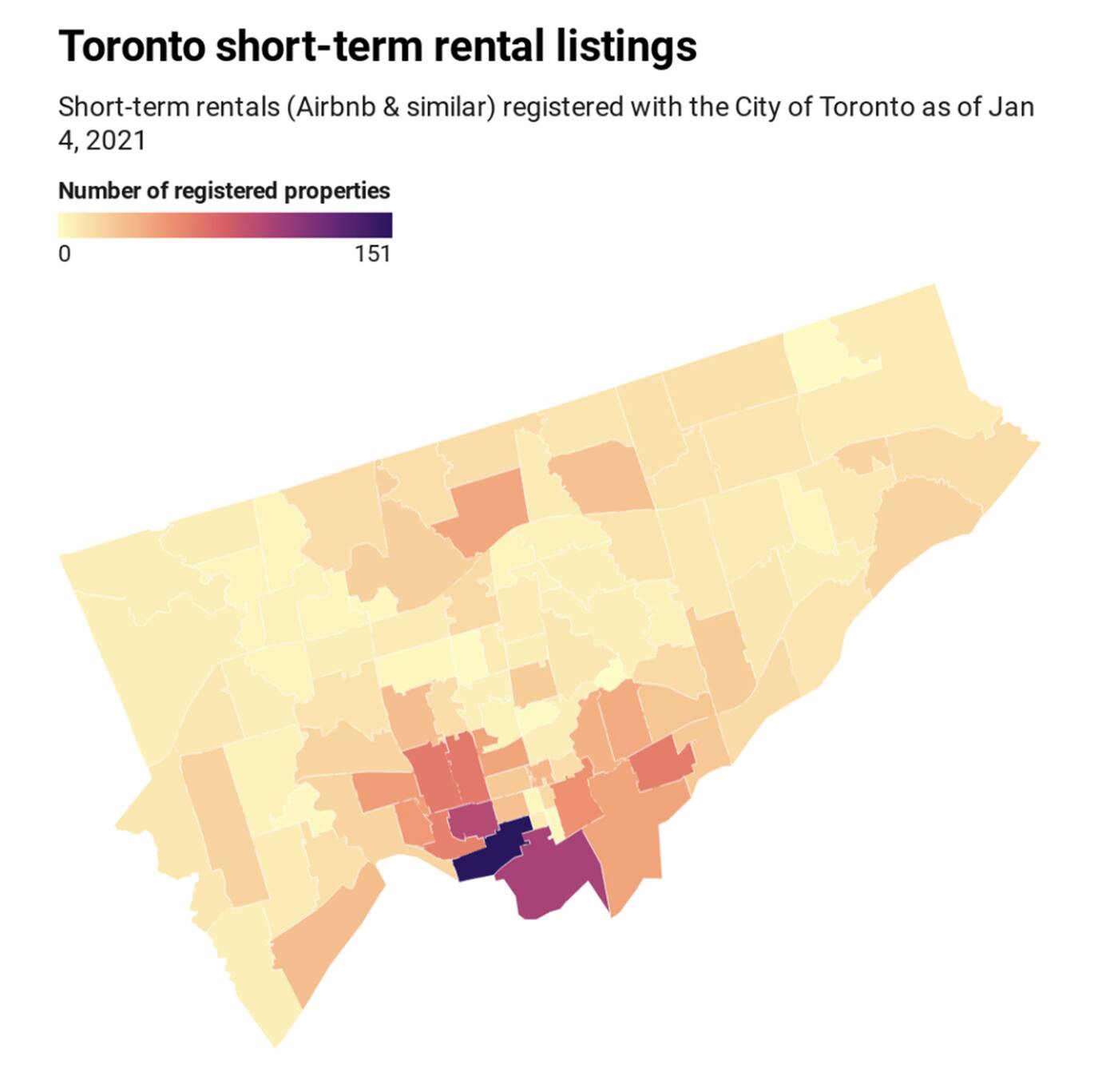
Between the health crisis and new restrictions introduced in Toronto last fall, the city's short-term rental market has been absolutely rocked in recent months, to the delight of those who know how detrimental so many "ghost hotels" are to the housing supply and long-term renters.
Despite the provincewide ban on such listings in the height of the pandemic, thousands of Airbnbs were still hosting guests in Toronto throughout 2020 — which, coupled with the fact that the city already had nearly 10,000 illegal short-term rentals, didn't lend residents much faith in the integrity of the industry and its stakeholders.
Regulatory noose tightens on @Airbnb. Toronto is one of @Airbnb's top 10 cities by revenue worldwide and local housing groups estimate 74% of revenue will disappear and more importantly 7,300 homes returned to housing market after regulations are enforced. https://t.co/Uz7rOgSWYc
— Inside Airbnb (@InsideAirbnb) December 11, 2020
Due in part to a decline in travel and tourism, there has more recently been a glut of Airbnbs coming onto the market as normal apartments, driving rent prices down and vacancy rates up, especially in condo buildings once notorious for weekend partiers from out-of-town.
The short-term rentals that still remain now have to be registered with the City, among adhering to other new rules, which means that this year we know a bit more about these units — including which neighbourhoods have the highest numbers of them.

Map courtesy of Matt Elliot using Toronto Open Data, via the City Hall Watcher newsletter.
According to the City's latest data on registered short-term rentals, there are nearly 2,000 listings.
But, this number is only based on those owners who registered their units by Jan. 1 as they were supposed to. Just one month before this deadline, a paltry 10 per cent of owners had done so, meaning that there are potentially many more Airbnbs operating in the city at current.
Still, the registration information gives some idea of where short-term rentals are the most popular. And, as expected, they are more dense in the downtown core, particularly in condo-heavy areas like along the Harbourfront and the Entertainment District.
Basically all of the city centre from Roncesvalles to just east of the DVP and the waterfront up to St. Clair are understandably rife with short-term rentals, with well over 150 registered listings each in Spadina-Fort York and University-Rosedale, as well as more than 100 in Beaches-East York, Toronto Centre, Davenport, Scarborough Centre and nearly 100 in Don Valley West.
These are, once again, only those listings that were registered with the city as of Jan. 1, with officials vowing to take enforcement action against any operators who aren't registered or following the rules, which include the fact that a short-term rental must be the owner's primary residence, not just an investment property.
"Registration is a mandatory step to legally rent out homes for short-term stays," the City reiterated in a statement last month.
Can’t wait to rat out the ghost hotel on my floor!
— JimJohnJoeJack (@JimJohnJoeJack) December 12, 2020
As more and more hosts continue to register and those flouting new guidelines are hopefully busted, we'll have to wait a bit longer to get a full data set that truly shows the new landscape of the short-term rental market in the city following the impacts of 2020 — and how increased travel in 2021 and a return to normal will change things.






0 comments:
Post a Comment